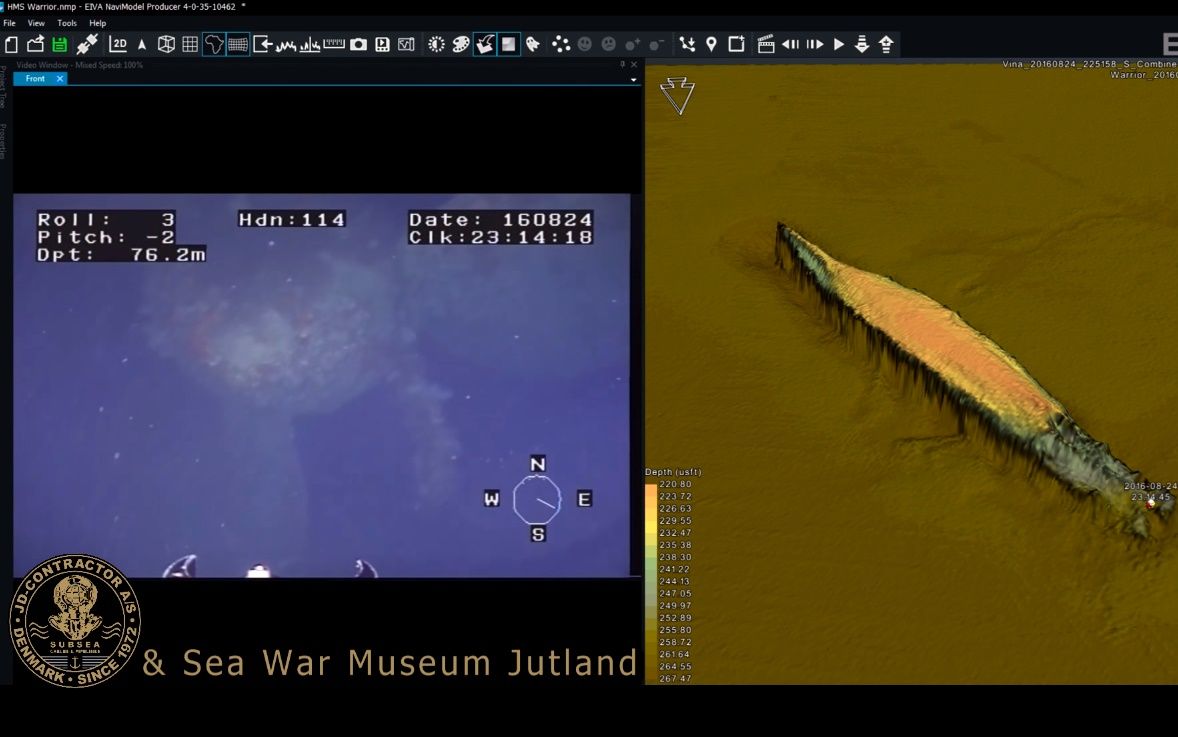Just weeks after a Danish expedition team located the wreckage of a German submarine that vanished 99 years ago in the North Sea during WWI, the very same group have made yet another startling find.
This time the diving expedition firm JD-Contractor, led by the Sea War Museum Jutland founder Gert Normann Andersen, has found the wreckage of the British cruiser HMS Warrior – 100 years after it sank in the North Sea.
HMS Warrior sustained heavy damage during the Battle of Jutland in 1916 and 71 of its crew died. The remainder of its 743 crew members were transferred to HMS Engadine, which then tried to tow HMS Warrior back to England – an effort that was abandoned due to poor weather conditions.
“The first task of the expedition was to analyse the route it was towed and the official positions of where it sank,” Sea War Museum Jutland wrote in a press release.
“In total, 30 wrecks were found and investigated along the route and Warrior turned up as number 27. It was located 19-27 sea miles from official positions. Multibeam measurements were taken of the wreckage and video recordings were made using a ROV – a remotely operated underwater vehicle (see below).
READ MORE: Danes make exceptional U-boat find in the North Sea
Good condition
The wreckage is in a reasonable condition some 83 metres below the surface, and the ship’s keel is facing up.
Compared to the other wrecks from the Battle of Jutland, the HMS Warrior is in deeper water and its armoured sidings means its contents will be preserved for many more years.
The find was made in co-operation with Dr Innes McCartney of Bournemouth University in the UK.














